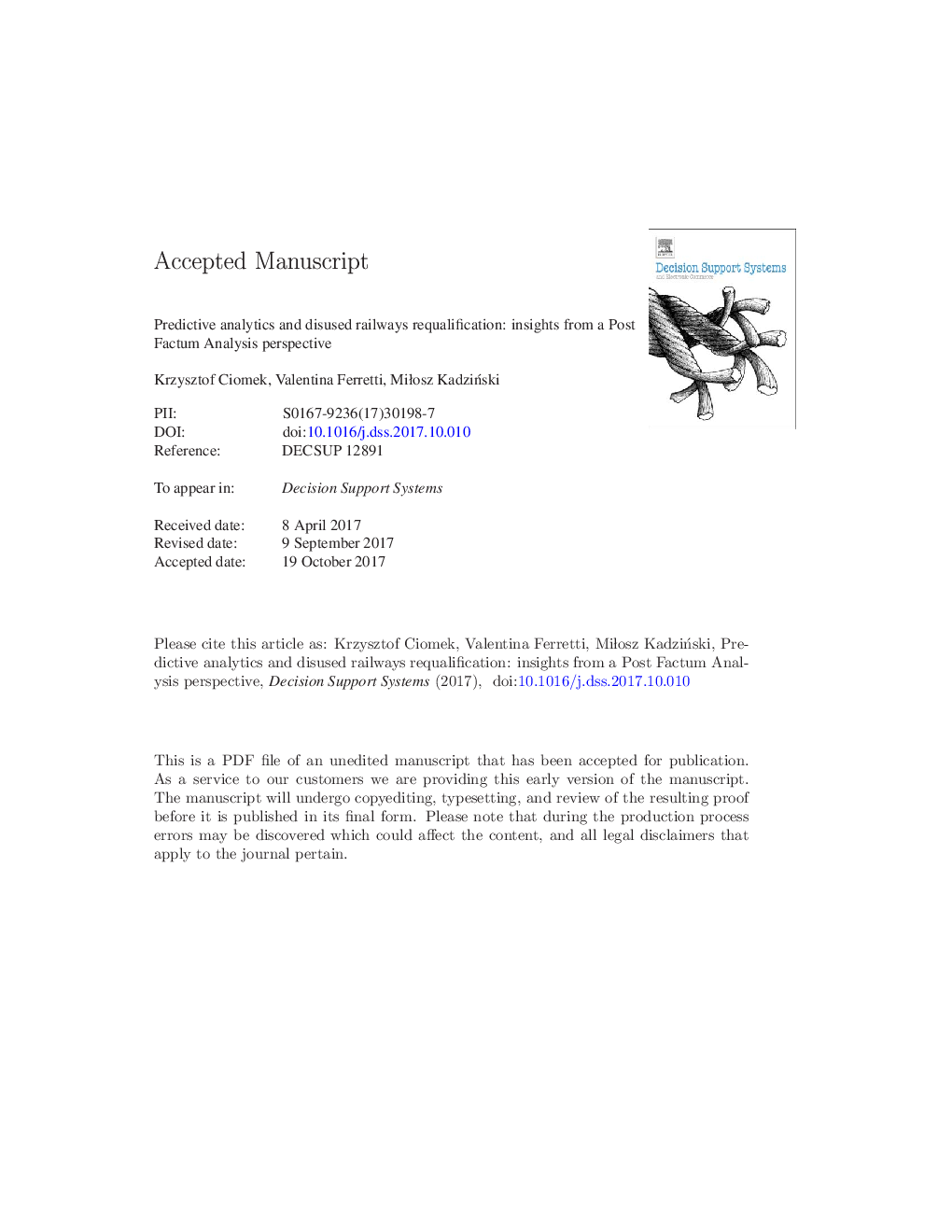| Article ID | Journal | Published Year | Pages | File Type |
|---|---|---|---|---|
| 6948407 | Decision Support Systems | 2018 | 37 Pages |
Abstract
Strategic decision making problems in the public policy domain typically involve the comparison of competing options by different stakeholders. This paper considers a real case study dealing with potential actions to be ranked for the regeneration of disused railways in Italy. The study involves multiple conflicting criteria such as an expected duration of construction works, costs, number of potential users, and new green areas. Within this context, we demonstrate that Post Factum Analysis (PFA) coupled with Decision Aiding supports the development of robust recommendations. The role of PFA is to highlight how the actions' performances need to be modified so that the recommendation is changed in a desired way. In particular, it highlights the minimal improvements that would warrant the feasibility of a currently impossible outcome (e.g., achieving a better position in the ranking) or the maximal deteriorations that alternatives can afford to maintain a target result (e.g., not losing their advantage over some other options). The use of a focus group with both experts and participants in the decision making process provided insights on how PFA can support: (i) the creation of arguments in favour or against the respective options under analysis, (ii) understanding of the results' sensitivity with respect to possible changes in the performances assigned to actions on different criteria, (iii) a better informed discussion about the results among the participants in the process, and (iv) the development of new/better alternatives.
Related Topics
Physical Sciences and Engineering
Computer Science
Information Systems
Authors
Krzysztof Ciomek, Valentina Ferretti, MiÅosz KadziÅski,
